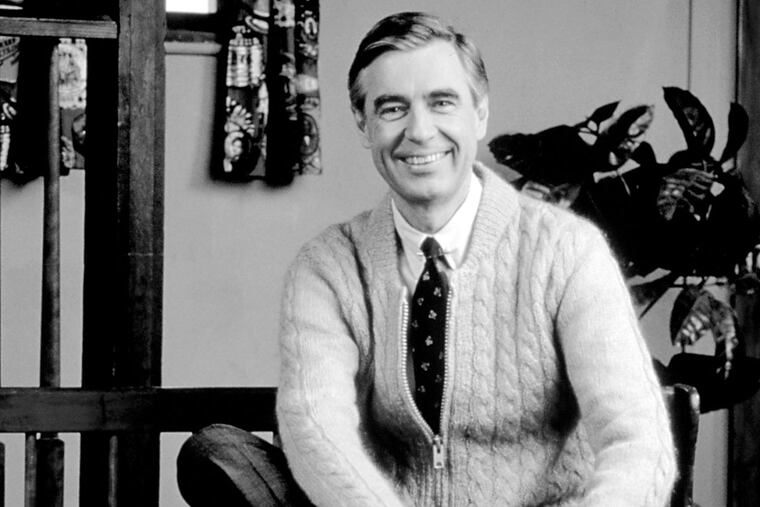In difficult times, focus on the neighborhood helpers
I need someone like Fred Rogers to assuage the unfathomable evils existing in the world. Clad in his famed cardigan sweater and slippers, Mr. Rogers, of the award-winning Mr. Rogers' Neighborhood, represented stability in a society grappling with a multitude of ills. He once reassured his audience, "When I was a boy and I would see scary things in the news, my mother would say to me, 'Look for the helpers. You will always find people who are helping.' "

I need someone like Fred Rogers to assuage the unfathomable evils existing in the world.
Clad in his famed cardigan sweater and slippers, Mr. Rogers, of the award-winning Mr. Rogers' Neighborhood, represented stability in a society grappling with a multitude of ills. He once reassured his audience, "When I was a boy and I would see scary things in the news, my mother would say to me, 'Look for the helpers. You will always find people who are helping.' "
Despite the barrage of threatening pictures featuring masked men and women determined to kill others as well as themselves, those helpers exist - often at the risk of their own lives. Recently, when Paris streets became a war zone, helpers invited fellow Frenchmen into their homes. Helpers also ran to assist those injured and in shock during the 2013 Boston Marathon bombing. In another century, helpers ushered slaves along the Underground Railroad to freedom. Helpers hid Jews in cramped European attics and basements to spare them from dying in concentration camps. Today's helpers travel to faraway places to ensure that others have access to better health care, water, and food. These helpers assist refugees in assimilating into a new culture and a new life in a foreign land.
Sometimes helpers can do little things, such as place candles or flowers at a shrine, like the French father convincing his 6-year-old son that the good guys still prevail by pointing to the outpouring of bouquets and flickering lights at the Bataclan Theater.
During the late 1960s, when racial riots and antiwar demonstrations rumbled through our country, Mr. Rogers' puppets - Daniel Striped Tiger, Henrietta Pussycat, Lady Elaine - mirrored children's feelings about difficult topics. When his goldfish died, Mr. Rogers openly shared with his worldwide television audience his curiosity about death. Rogers, who received more than 40 honorary degrees, had an innate gift for making children think like adults and adults think like children.
Thirty years ago, when my then-preschoolers watched Mr. Rogers, I didn't worry about violence, bad influences, or damaging messages. Meanwhile, easily accessible violent video games became breeding grounds for some future terrorists. My children would come to learn that not everyone possesses the qualities of Mr. Rogers.
Fred McFeely Rogers' soothing voice patiently addressed the myriad of questions kids - and even adults - ask. Rogers, an ordained minister who died 12 years ago at 74 years old, talked openly about fears, including nuclear annihilation, divorce, and death. In addition, he gave 15 minutes of fame to everyone from abstract artists to ditch diggers to firefighters.
Mr. Rogers enhanced children's natural curiosity, exposing everyday people participating in everyday events, such as doctors unraveling casts or factory workers packaging cookies. For 30 years, Mr. Rogers taught children to think about the world outside the confines of their homes.
Our next generation of children drifts off to sleep with anxiety-producing worries about ISIS and al-Qaeda in their neighborhoods. In such trying times, we need to remember Mr. Rogers' advice: Focus on the helpers. Those helpers can be your neighbors.
Linda George is a writer in Elkins Park. lindasgeorge@gmail.com